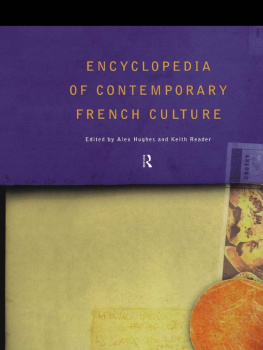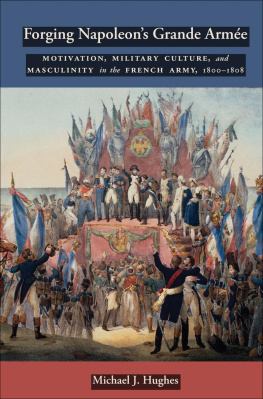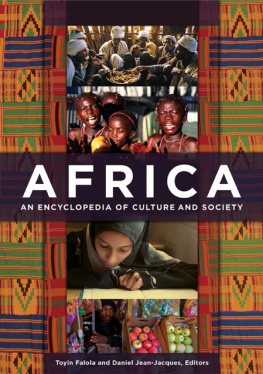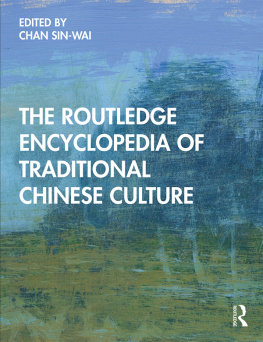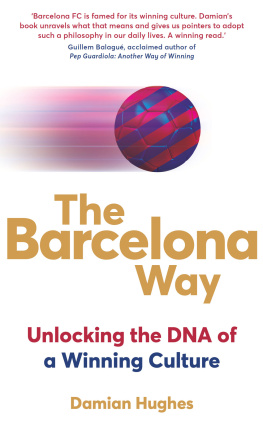ENCYCLOPEDIA OF CONTEMPORARY FRENCH CULTURE
ENCYCLOPEDIA OF CONTEMPORARY FRENCH CULTURE
Edited by
Alex Hughes and Keith Reader
First published 1998
by Routledge
11 New Fetter Lane, London EC4P 4EE
29 West 35th Street, New York, NY 10001
This edition published in the Taylor & Francis e-Library, 2003.
1998 Routledge
All rights reserved. No part of this book may be reprinted or reproduced or utilized in any form or by any electronic, mechanical, or other means, now known or hereafter invented, including photocopying and recording, or in any information storage or retrieval system, without permission in writing from the publishers.
British Library Cataloguing in Publication Data
A catalogue record for this book is available from the British Library
Library of Congress Cataloging-in-Publication Data
Encyclopedia of contemporary French culture/edited by
Alex Hughes and Keith Reader
p. cm.
Includes bibliographical references and index.
1. FranceCivilization1945Encyclopedias. 2. FrancePopular cultureEncyclopedias. I. Hughes, Alex. II. Reader, Keith.
DC33.7.E53 1998 9731879 CIP
944.0803dc21
ISBN 0-203-00330-6 Master e-book ISBN
ISBN 0-203-20475-1 (Adobe eReader Format)
ISBN 0-415-13186-3 (Print Edition)
Editorial team
General editors
Alex Hughes
University of Birmingham, UK
Keith Reader
University of Newcastle upon Tyne, UK
Consultant editors
David Bradby
Royal Holloway, University of London, UK
Verena Ande rmatt Conley
Miami University, USA
Susan Hayward
University of Exeter, UK
Nicholas Hewitt
University of Nottingham, UK
Brian Nelson
Monash University, Australia
Ian Pickup
University of Birmingham, UK
Steve Ungar
University of Iowa, USA
Jan Windebank
University of Sheffield, UK
Michael Worton
University College London, UK
List of contributors
Elza Adamowicz
Queen Mary and Westfield College London
Dennis Ager
Aston University
Robert Aldrich
University of Sydney
Laurence Bell
University of Surrey
Jennifer Birkett
University of Birmingham
Michael Bishop
Dalhousie University
Craig Blunt
University of Birmingham
Sophie Boyron
University of Birmingham
William C.Calin
University of Florida
Kay Chadwick
University of Liverpool
Susan Collard
University of Sussex
Tom Conley
Harvard University
Martyn Cornick
University of Birmingham
Batrice Damamme-Gilbert
University of Birmingham
Hugh Dauncey
University of Newcastle upon Tyne
Richard Derderian
University of North Carolina
Philip Dine
Loughborough University
David Drake
Middlesex University
David Ellison
University of Miami
Elizabeth Ezra
University of Stirling
Patrick ffrench
University College London
Jill Forbes
University of Bristol
Cathy Fowler
Southampton Institute
Johnnie Gratton
University College Dublin
Vrne Grieshaber
University College London
Renate Gnther
University of Sheffield
Ron Hallmark
University of Birmingham
Sen Hand
Oxford Brookes University
Linda Hantrais
Loughborough University
Peter Hawkins
University of Bristol
Susan Hayward
University of Exeter
Owen Heathcote
University of Bradford
Nicholas Hewitt
University of Nottingham
Lynn A.Higgins
Dartmouth College (USA)
Gill Howie
Liverpool University
Alex Hughes
University of Birmingham
Simeon Hunter
United Kingdom
Lala Ibnlfassi
London Guildhall University
Kate Ince
University of Birmingham
Brian Jenkins
University of Portsmouth
Christopher Johnson
Keele University
Roger Kain
University of Exeter
Debra Kelly
University of Westminster
Michael Kelly
University of Southampton
William Kidd
University of Stirling
Eleonore Kofman
Nottingham Trent University
Raymond Kuhn
Queen Mary and Westfield College
David Looseley
University of Leeds
Lucy McKeever
Sunderland University
Mark McKinney
Miami University
Jean Mainil
University of Nottingham
Margaret Majumdar
University of Glamorgan
John Marks
Loughborough University
Bill Marshall
University of Southampton
Ann Miller
Leicester University
Pam Moores
Aston University
Peter Morris
Aston University
Franois Nectoux
Kingston University
Patrick ODonovan
University College Cork
George Paizis
University College London
Alan Pedley
University of Exeter
Ian Pickup
University of Birmingham
Grard Poulet
University of Exeter
Phil Powrie
University of Newcastle upon Tyne
Keith Reader
University of Newcastle upon Tyne
Jo Reed
University of Birmingham
Mireille Rosello
University of Nottingham
Gerard Paul Sharpling
University of Birmingham
Michael Sheringham
Royal Holloway, University of London
Max Silverman
University of Leeds
Annie Sparks
Royal Holloway, University of London
Judith Still
University of Nottingham
Walter A.Strauss
Case Western Reserve University
Anthony Sutcliffe
University of Leicester
Valerie Swales
University of Portsmouth
Joe Szarka
University of Bath
Carrie Tarr
Thames Valley University
Ursula Tidd
University of Salford
Chris Tinker
University of Birmingham
D.A.Trotter
University of Wales, Aberystwyth
Steven Ungar
University of Iowa
Jolle Vitiello
Macalester College, Saint Paul
Khursheed Wadia
University of Wolverhampton
Peter Wagstaff
University of Bath
Fiona Warne
University of Birmingham
Colville Wemyss
MA, University of St Andrews
Steve Wharton
University of Bath
Nicola White
Kingston University
Carol Wilcox
South Kent College
James Williams
University of Kent at Canterbury
Jan Windebank
University of Sheffield
Michael Worton
University College London
Preface
In an age when France has consolidated its position as the leading European destination for Englishspeaking holiday-makers, tourists and second-home-owners, retained its prestige as the international capital of gastronomy, wine production, chic and sex appeal, and bred film directors to rival Hollywood and singer-songwriters without equal on the world stage, it has also become an object of profound suspicion for many non-French commentators on the intellectual life. French ideas are produced in a faddish and fashion-conscious climate, we are often told, prominent philosophers and social theorists are treated with absurd veneration and their obscure, portentous, jargon-infested diction threatens to run riot through the human sciences, undermining otherwise secure British and North American bastions of clarity, good sense and methodological rectitude. It could of course be that the prevailing enthusiasm for France as a source of pleasure is closely linked to this distrust of French ideas: while

